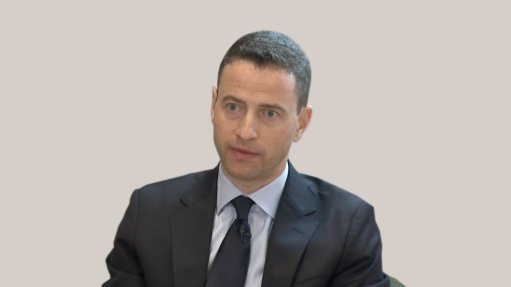How to prevent solar inverter short-circuits and fires
This article has been supplied.
With many South Africans installing inverters as part of solar power systems to mitigate the impact of loadshedding in homes and at businesses, users need to be aware of the potential fire risk. This includes overheating or short-circuits in the battery or other electrical parts that could result in an explosion, warns ASP Fire CEO Michael van Niekerk.
An essential part of any solar power system, solar inverters convert direct current (DC) power produced by photovoltaic solar panels into alternating current (AC) electricity to power appliances and devices at home and in businesses.
“There are various factors that can cause a solar inverter to catch fire,” notes van Niekerk. It can simply be the naturally high temperature of its operating environment, compounded by the equipment generating heat as it inverts and transforms high-voltage electricity.
Potential short-circuits can also be caused by a lack of adequate maintenance and management, improper installation, poor quality equipment, or vegetation, plant debris and even small animals and insects finding their way into equipment.
Grid-tied solar systems are exposed to inrush current when the power is restored after load shedding that can cause damage or fires, so it is important to have the system designed and signed off by a registered electrical engineer.
“Any failed component that short-circuits can result in a fire that spreads throughout the inverter, causing a domino effect,” highlights van Niekerk. Here automatic fire suppression is important to quickly detect and suppress a fire so the inverter is offline before the fire can spread to other components. This reduces the impact of any fire and prevents damage to other equipment and the surrounding area.
The following general safety tips are recommended:
- Place the inverter on a reasonably flat horizontal or vertical surface.
- Keep the inverter dry and do not expose it to rain or moisture. Do not operate the inverter if any surface that is wet may come in contact with any power source. Water and many other liquids can conduct electricity and lead to serious injury or death.
- Avoid placing the inverter on or near heating vents, radiators or other sources of heat. Do not place the inverter in direct sunlight.
- Ensure the inverter is well ventilated so as to properly disperse heat generated while the inverter is in operation. Maintain a clearance of a few centimetres on the top and sides of the inverter when it is in operation.
- Do not use an inverter near flammable or combustible materials or place it in areas such as battery compartments where fumes or gases may accumulate.
“Fires will happen,” says van Niekerk. Therefore, it is important to prepare for the worst-case scenario by understanding the fire risks, how to best mitigate those risk factors, and then lastly how to manage a solar inverter fire.
Article Enquiry
Email Article
Save Article
Feedback
To advertise email advertising@creamermedia.co.za or click here
Announcements
What's On
Subscribe to improve your user experience...
Option 1 (equivalent of R125 a month):
Receive a weekly copy of Creamer Media's Engineering News & Mining Weekly magazine
(print copy for those in South Africa and e-magazine for those outside of South Africa)
Receive daily email newsletters
Access to full search results
Access archive of magazine back copies
Access to Projects in Progress
Access to ONE Research Report of your choice in PDF format
Option 2 (equivalent of R375 a month):
All benefits from Option 1
PLUS
Access to Creamer Media's Research Channel Africa for ALL Research Reports, in PDF format, on various industrial and mining sectors
including Electricity; Water; Energy Transition; Hydrogen; Roads, Rail and Ports; Coal; Gold; Platinum; Battery Metals; etc.
Already a subscriber?
Forgotten your password?
Receive weekly copy of Creamer Media's Engineering News & Mining Weekly magazine (print copy for those in South Africa and e-magazine for those outside of South Africa)
➕
Recieve daily email newsletters
➕
Access to full search results
➕
Access archive of magazine back copies
➕
Access to Projects in Progress
➕
Access to ONE Research Report of your choice in PDF format
RESEARCH CHANNEL AFRICA
R4500 (equivalent of R375 a month)
SUBSCRIBEAll benefits from Option 1
➕
Access to Creamer Media's Research Channel Africa for ALL Research Reports on various industrial and mining sectors, in PDF format, including on:
Electricity
➕
Water
➕
Energy Transition
➕
Hydrogen
➕
Roads, Rail and Ports
➕
Coal
➕
Gold
➕
Platinum
➕
Battery Metals
➕
etc.
Receive all benefits from Option 1 or Option 2 delivered to numerous people at your company
➕
Multiple User names and Passwords for simultaneous log-ins
➕
Intranet integration access to all in your organisation


















